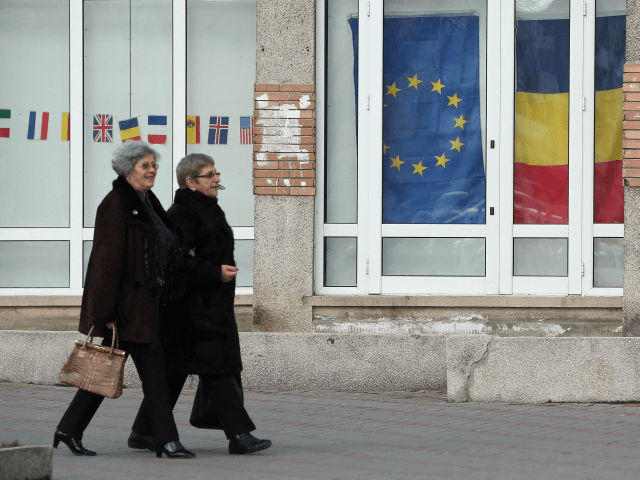(AFP) – A new school and cultural centre are tangible benefits of EU membership, according to Vladimir Paun, a Romanian mayor. But euroscepticism is also rising, against a background of inequality.
For the former communist country which votes Sunday in parliamentary elections, January 1, 2007 was a “chance to get closer to the level of development” of western Europe, says Paun.
In Racoasa, a village of 3,300 people in Romania’s northeast, the 39-year-old mayor took advantage of EU community funding.
He is now seeking money to pave two roads, modernise a school and extend the running water system. Joining the EU “brought benefits for all of us,” Paun says.
For business, 2007 also marked a turning point.
“It was an enormous chance, because we were able to work for all the big companies that opened offices in Romania,” Robert Savu, founder of the furniture company, Ekero, in the capital, Bucharest, said.
“We have also started to export” to Europe, the 48-year-old added.
Romania has gained 26 billion euros ($28 billion) since it joined the EU, according to Leonard Orban, a former European commissioner.
“We can discuss how this money was spent, but in the end it contributed to development,” he said.
– No running water –
Romania’s gross domestic product grew from 98 billion euros in 2006 to 158 billion euros last year and the amount of direct foreign investment almost doubled — to 64.4 billion euros — in 2015.
The benefits, however, have not been equally shared. Many Romanian communities are marked by extreme poverty and almost non-existent infrastructure.
More than half the households in rural areas don’t have running water. And in scores of schools children must wear their coats in lessons because classrooms lack heating.
And 10 years after it joined, Romania has five of the EU’s 21 poorest regions, its GDP per capita is half the European average and salaries average 470 euros per month.
According to statistics, a quarter of its nationals live in poverty. The figure is even worse for the Roma community.
“Paradoxically, poverty is worsening at the same time as Romania is registering strong growth rates,” economist Dan Popa said, referring to projections of 4.8 percent for 2016.
– Not living ‘like Germany’ –
Against such contrasting figures, confidence in the EU is declining. Some 53 percent of Romanians say being part of the EU is a good thing, the figure is nine percent down from last year.
“Accession coincided with the start of the financial crisis and all those who hoped that, from one day to the next, we would live like Germany were disappointed,” economist Otilia Nutu, of Expert Forum think tank, told AFP.
Romania plunged into a deep recession in 2009 and did not exit until an austerity package, including 25-percent cuts in public sector salaries, was enforced.
Joining the EU also required painful reforms for the country, including the restructuring of industry from the communist era and the closure of non-profitable coal mines.
“The social cost has been high and the government has not had the capacity to institute programmes that could limit the impact,” said Nutu.
Wages have progressed little because Romania’s cheap labour is the principal attraction for foreign investors, including French carmaker Renault, according to Mihai Daraban, president of the country’s Chamber of Commerce and Industry.
While unemployment looks relatively low at around six percent, the figure is flattered because nearly three million Romanians, out of a population of 20 million, work abroad.
This is something that even a village such as Racoasa cannot avoid. “Between 25 percent and 30 percent of our inhabitants work abroad,” said mayor Paun.

COMMENTS
Please let us know if you're having issues with commenting.